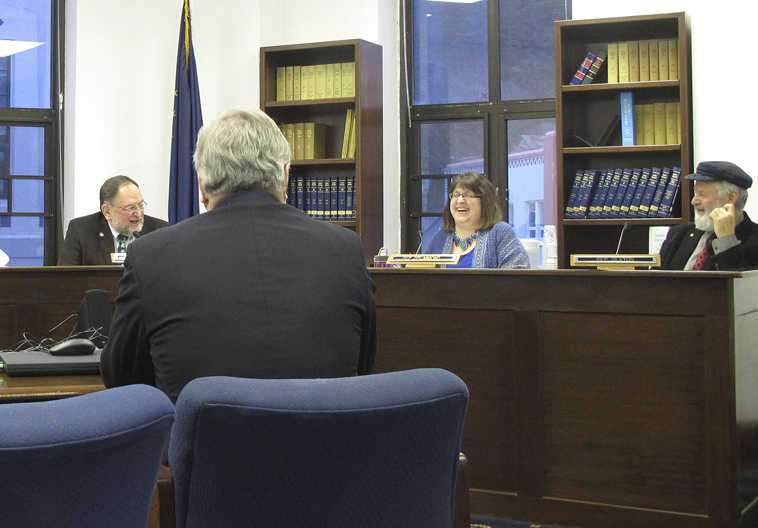JUNEAU — Alaska lawmakers are considering a bill that would require school districts to teach American constitutionalism, the latest of several state government measures across the U.S. aimed at civics education.
Alaska’s House Education Committee heard Friday from members of the public who supported the bill, including some educators.
Bob Bird, who teaches constitutional law to 12th-graders at Nikiski High School, said students need more constitutional instruction. “Only when you actually parse through the documents, and the Federalist and Anti-federalist Papers, can you really understand what’s going wrong” in the U.S., he said via teleconference.
Once students read the documents, Bird said, many understand “we are in a terrible constitutional mess.”
The Republican-led bill would require Alaska high school students to study the Declaration of Independence, the Bill of Rights, the U.S. Constitution, the Articles of Confederation, the Federalist Papers and the first state constitutions.
Arizona and North Dakota legislators last month adopted GOP-backed laws requiring high school students to pass the civics portion of the U.S. citizenship test to receive a diploma. Lawmakers in Utah, South Dakota and Tennessee and other states are now considering similar bills at the suggestion of Republican sponsors.
Alaska state Rep. Wes Keller, one of three House sponsors, has called the bill a “soft mandate.” The Wasilla Republican said he wants to allow each school district to decide how to implement the requirement. Districts can add the material to an existing history or civics course, or another class, he said, but it must be required for graduation.
The committee did not vote on the measure, and it will likely come up for debate again next week.
This is the third time Keller has introduced such a bill. He did so in 2011 and 2013; neither of those proposals made it very far in the legislative process.
An aide to Keller said that while the issue wasn’t a priority before, this time around it appears there’s more momentum within the Legislature, and in the state as a whole, for the bill.
But some committee members expressed doubt, including Rep. Paul Seaton who has opposed similar measures in previous years. Seaton, a Homer Republican, said he was concerned about what values might be highlighted, and how the Constitution would be portrayed.
He said some ideas that were present when America was founded are no longer acceptable: slavery is now prohibited, and women can now vote and own property.
“I’m concerned about the actual implementation of the bill and saying we’re going to teach the values of people,” Seaton said, adding “including those values we no longer espouse, and that we’ve actually changed by amendment to the Constitution.”

